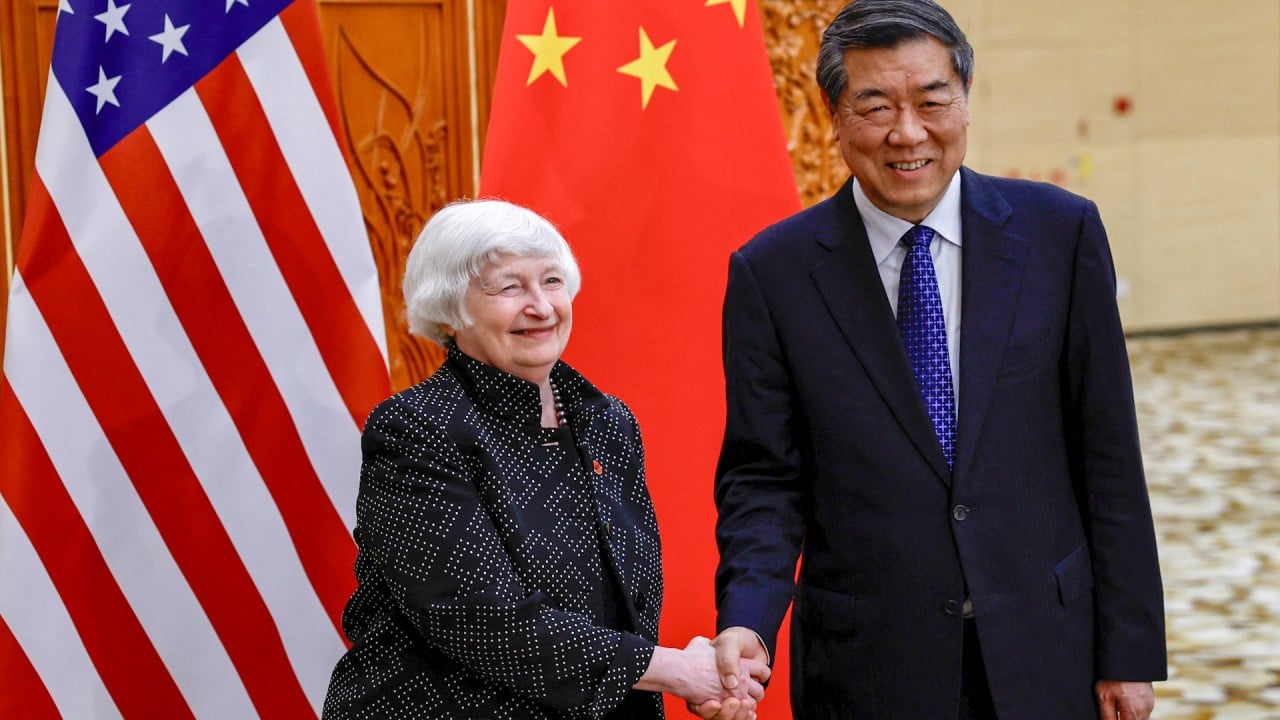Henry Gao, a law professor at Singapore Management University, said he would not be surprised if China imposes countermeasures against the proposed tariffs through countervailing duties against US firms.
“I don’t think the recent meetings [between senior officials from China and the US] will help, as they are more to stabilise the relationship and avoid major surprises on issues such as Taiwan,” said Gao, a veteran researcher on international trade issues.
“But they are unlikely to alleviate concerns over economic competition.”
Lu Xiang, a senior researcher with the Chinese Academy of Social Sciences, said he expected the US to take action against China “all the way up to the election” as Biden seeks to win a second term.
“The scale of China’s response will depend on how big of an impact the latest US investigations will have,” Lu said. “Even though the move was driven by elections, China will not take that into consideration when formulating a response.”
China’s Ministry of Commerce said in a statement today that it is “dissatisfied with and firmly opposes” the USTR’s investigation into China’s maritime, logistics and shipbuilding sectors. It made similar comments in relation to the US’ claims about steel and aluminium, affirming its opposition and saying the accusations have “no factual basis”.
The American Iron and Steel Institute, a trade association of steel producers, said in a statement on Wednesday that while there hadn’t been a surge in Chinese steel shipments to the US, the metal is often sent to third countries to be processed into other products which then enter the US market.
Bryan Mercurio, professor of law at the Chinese University of Hong Kong, said the trend suggests China has reopened its old playbook and chosen to export its way out of an economic downturn.
“This may not be a good thing for everyone’s economy, as an oversupply of commodities leads to a reduction in prices and uncertainty for enterprises in other countries,” Mercurio said.
In March, China increased its steel exports to 9.89 million tonnes – an increase of 25.3 per cent compared to March 2023 – and its exports of unwrought aluminium and aluminium products amounted to 510,000 tons, a year-on-year increase of 3.1 per cent according to Chinese customs data. In February, China exported just 120,220 tonnes of steel to the US.
The tariffs would take on much greater significance … if they signalled the start of a new and rapidly escalating round of trade retaliations
“China’s share of US steel and aluminium imports are microscopic, so even if tariffs essentially closed the US market in these sectors, the impact on overall US-China trade would be small,” said Stephen Olson, a visiting lecturer and non-resident fellow at the University of Nebraska Lincoln’s Yeutter Institute of International Trade and Finance.
“The tariffs would take on much greater significance, however, if they signalled the start of a new and rapidly escalating round of trade retaliations.”
South Korea, Vietnam, the Philippines and Thailand are among the top export markets for Chinese steel.
China trade delegation chief raises US restrictions at Washington meeting
China trade delegation chief raises US restrictions at Washington meeting
“Chinese officials have apparently calculated that this is a risk worth taking and they will ultimately be able to weather the storm of retaliation, from the US or elsewhere,” Olson said.
It is to China’s benefit to move manufacturing bases overseas to diversify the potential risks
Jens Eskelund, president of the European Union Chamber of Commerce in China, said while the recent US investigations do not present an immediate worry for European businesses in China, “such tensions could have a spillover effect on their business too, especially if these tensions lead to trade restrictions.”
Zhou Chao, a researcher at Beijing-based think tank Anbound, said it is likely that more Chinese manufacturers move out of the country to markets where they are “less affected by US tariffs”.
“While the Chinese government would perhaps continue pushing against the US’ tariffs through the World Trade Organization, it is to China’s benefit to move manufacturing bases overseas to diversify the potential risks that could come with more US investigations,” Zhou said.
A US business executive who has advised American companies on China for over a decade said Biden could be focusing on winning votes from blue-collar workers with his proposed tariffs.
“I think what China is looking for now is tangible benefits. They need investment back into China and to lower tensions. So if I were advising Beijing, I would advise them to let it go and say this is going to be an example of restraint … even if they were to retaliate, I think it would be nothing more than a public relations move.”
"trade" - Google News
April 18, 2024 at 09:00PM
https://ift.tt/hILlaN1
China steels itself for new front in trade war after US proposes tariffs on metals - South China Morning Post
"trade" - Google News
https://ift.tt/UQGH7EF

Tidak ada komentar:
Posting Komentar